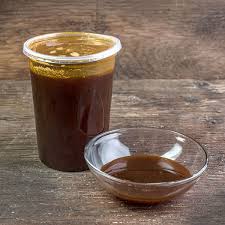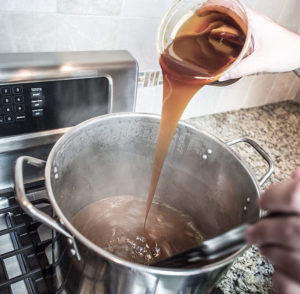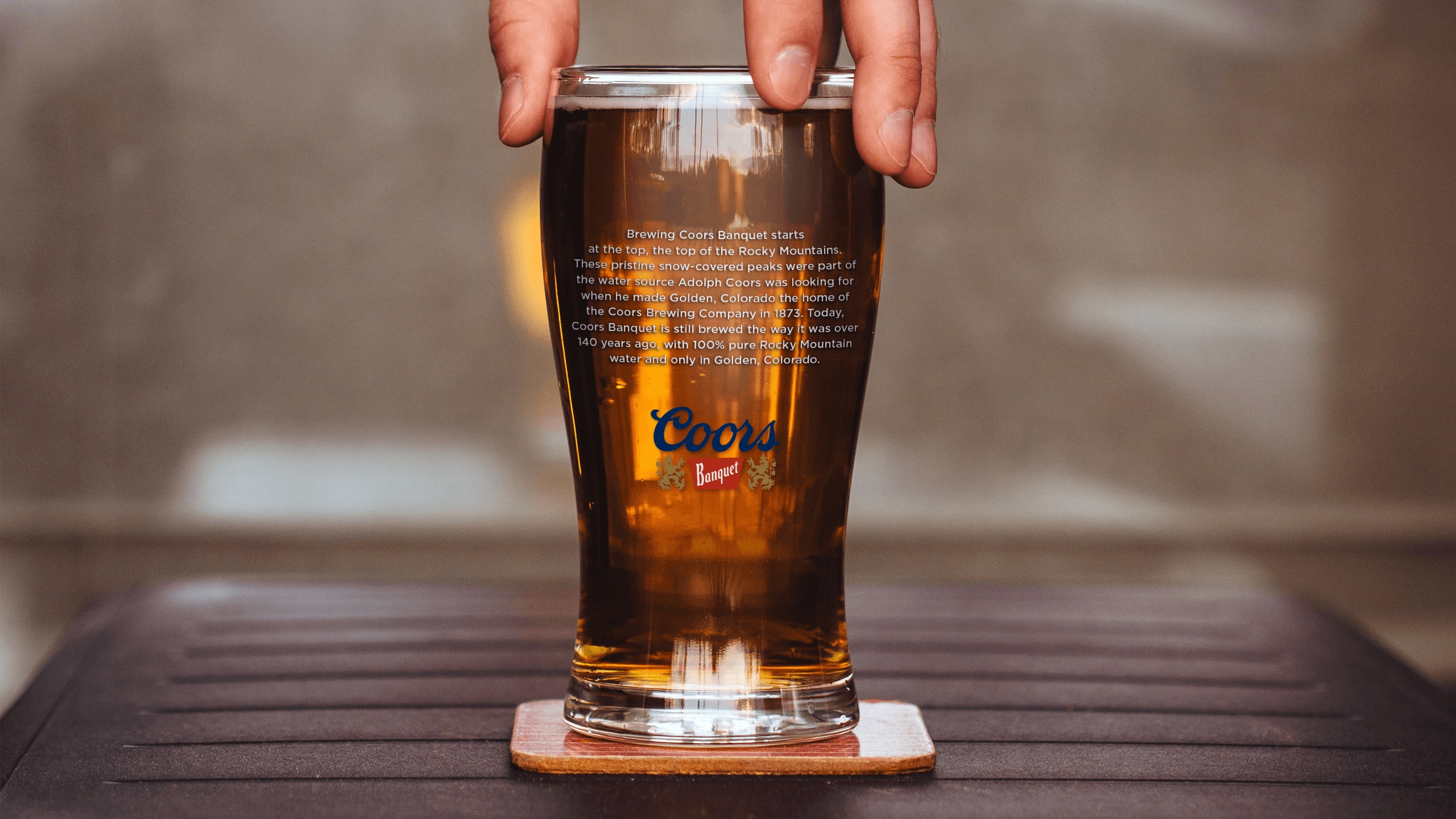The use of liquid malt extract to brew beer verges on the sacrilegious for many home brewers. To those who are committed to the art of brewing, the only way to get home-brew is full grain mashing and using extract would compromise your principles as a home-brewer. Yet let’s face it brushing extract is where many of us are cutting our home-brewing teeth so maybe it’s unwise to be too serious. It has some huge advantages over full grain mashing on the face of a well-made extract and that’s what I’d like to look at in this article.
What is Extract of Malt?
 The simplest answer is that distilled brewers wort is an extract of liquid malt. Wort is the name given to the sugar liquid fermented to make beer by the brewers. Liquid extract producers usually mash in almost the same way as a brewer, using the same raw materials, tools , and processes; the only difference is that instead of taking the wort and fermenting it, as a brewer might do, an extract producer concentrates the wort by vacuum evaporation. The effect is that the wort is concentrated with 20 percent solids and 80 percent water or 80 percent solids and 20 percent water. It gives a liquid beverage that is very viscous and can be prepared for home brewing. Essentially, many extract manufacturers are in their own right commercial brewers, meaning that the wort is distilled and hopped in the normal way, but instead of diverting the cooled wort to the fermentation chamber, it is evaporated.
The simplest answer is that distilled brewers wort is an extract of liquid malt. Wort is the name given to the sugar liquid fermented to make beer by the brewers. Liquid extract producers usually mash in almost the same way as a brewer, using the same raw materials, tools , and processes; the only difference is that instead of taking the wort and fermenting it, as a brewer might do, an extract producer concentrates the wort by vacuum evaporation. The effect is that the wort is concentrated with 20 percent solids and 80 percent water or 80 percent solids and 20 percent water. It gives a liquid beverage that is very viscous and can be prepared for home brewing. Essentially, many extract manufacturers are in their own right commercial brewers, meaning that the wort is distilled and hopped in the normal way, but instead of diverting the cooled wort to the fermentation chamber, it is evaporated.
What are the advantages of brewing an extract?
Since liquid extract is a condensed brewer version, the inexperienced home-brewer simply needs to add water and yeast, and their first brew is on the go. Therefore the brewing of extracts is an ideal entry point into the fascinating home-brewing hobby. No technical experience of brewing is required but extract brewing can be improved and made more complex as the skills and trust of the home-brewers improve.
It needs very little equipment so the start-up costs are low. Essentially you need a fermentation tank, some bottles, caps and a corker and you can get going. Contrast this with full grain mashing and you will see the appeal.
The key benefit of extract brewing to me, however, is one of occasions. It may sound lazy to say it but sometimes I want to make a nice beer that doesn’t take time. Brawing extract gives you that. Believe me when I say that in less than 30 minutes you can get a home-brew extract into the fermenter and add the yeast. You ‘re not going to beat that with full grain mashing and the results are always just as sweet.
What are its drawbacks?
 The biggest downside to using extract kits is you don’t have much or minimal control over the beer you make. Essentially your beer will just be the perception of a particular type of beer by someone else. When we look more closely into that claim, we can see that you are not only stuck with the definition of a beer by someone else, you are also stuck with any bad brewing technique employed by the extract manufacturer. Now, before I get into trouble with the home-brew extract producers, I don’t mean they would intentionally set out to manufacture a low quality brewer extract, but some of the common faults associated with extract such as stuck fermentation, hazy beers, color variation that result from the raw materials and processes they use. Home-brew kits have dramatically improved in recent years, however, I believe this has gone hand in hand with the rise in the craft brewing market. As the craft brewing sector expanded and became increasingly creative so the home-brew extract producers replied. It has contributed to the growth of home-brew kits which are approved versions of craft brewed beers such as the homebrew kits range Woodfordes, Milestone and St Peters. This advancement has meant that the extract quality has greatly improved because there are not many craft brewers who would want low quality home-brew kits harming their beer brands’ credibility. The kits bearing a commercial brewer ‘s name such as Woodfordes or St Peters are going through a stringent testing cycle until the brewer allows the product to be sold on the marketplace. In addition, there are some really interesting kits on the market that allow you to tinker with the recipe so you can customize the package to your own personal tastes. Such kits come with pellets of base malt extract, colored malt, and hop.
The biggest downside to using extract kits is you don’t have much or minimal control over the beer you make. Essentially your beer will just be the perception of a particular type of beer by someone else. When we look more closely into that claim, we can see that you are not only stuck with the definition of a beer by someone else, you are also stuck with any bad brewing technique employed by the extract manufacturer. Now, before I get into trouble with the home-brew extract producers, I don’t mean they would intentionally set out to manufacture a low quality brewer extract, but some of the common faults associated with extract such as stuck fermentation, hazy beers, color variation that result from the raw materials and processes they use. Home-brew kits have dramatically improved in recent years, however, I believe this has gone hand in hand with the rise in the craft brewing market. As the craft brewing sector expanded and became increasingly creative so the home-brew extract producers replied. It has contributed to the growth of home-brew kits which are approved versions of craft brewed beers such as the homebrew kits range Woodfordes, Milestone and St Peters. This advancement has meant that the extract quality has greatly improved because there are not many craft brewers who would want low quality home-brew kits harming their beer brands’ credibility. The kits bearing a commercial brewer ‘s name such as Woodfordes or St Peters are going through a stringent testing cycle until the brewer allows the product to be sold on the marketplace. In addition, there are some really interesting kits on the market that allow you to tinker with the recipe so you can customize the package to your own personal tastes. Such kits come with pellets of base malt extract, colored malt, and hop.

